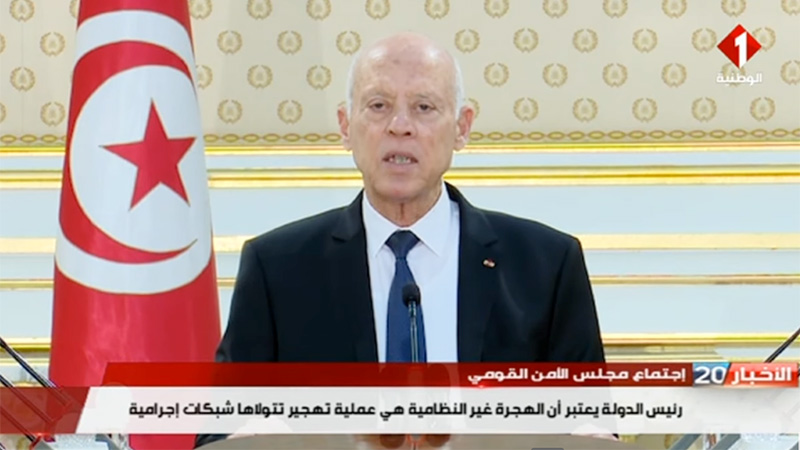
In Morocco and Tunisia, the far-right European conspiracy theory known as the Great Replacement has found an unexpected foothold, exposing deep social fractures and long-standing racial tensions in the Maghreb.
Originally conceived in Europe, this ideology has been adapted locally, amplifying fears and prejudices in societies already strained by economic challenges and social inequalities.
Tunisia has become a stark example of the political weaponization of this discourse. On February 21, 2023, President Kaïs Saïed delivered a speech asserting that “hordes of illegal migrants” were part of a “criminal plan” to alter the country’s demographic composition and render it “a uniquely African country that no longer belongs to the Arab and Islamic world.”
The immediate aftermath saw hundreds of sub-Saharan migrants forcibly evicted, dismissed from jobs, and, in some cases, physically assaulted.
Even Black Tunisians whose families had lived in the country for generations faced discrimination, highlighting the blurred lines between nationality, skin color, and societal belonging.
In Morocco, while official rhetoric remains measured, the digital sphere has become a breeding ground for the theory.
Social media platforms such as Facebook, Instagram, and TikTok are used to spread manipulated videos, alarmist statistics, and fabricated narratives of migrant “invasions.”
The content, often produced with professional polish, capitalizes on economic anxieties and exploits algorithms that prioritize engagement over accuracy, creating echo chambers where radicalization thrives.
The resonance of these ideas in the Maghreb is rooted in historical and structural factors.
The long history of the trans-Saharan slave trade, coupled with selective post-colonial national narratives privileging Arab-Muslim identity, has marginalized sub-Saharan, Amazigh, and Jewish communities.
Terms with derogatory connotations persist in everyday language, normalizing racial hierarchies.
The consequences for affected communities are severe. Migrants and local Black populations face physical attacks, housing discrimination, job insecurity, and systemic exclusion from education and healthcare.
Women and children endure compounded vulnerabilities, including gender-based violence and legal limbo.
Civil society is mobilizing against this rising intolerance. Human rights groups, artists, and activists are documenting abuses, offering legal support, and advocating for inclusive education and legislation.
They emphasize the need for a counter-narrative that celebrates the Maghreb’s historical diversity and fosters social cohesion.
As Morocco and Tunisia grapple with these divisive forces, the choice is clear: succumb to scapegoating or embrace inclusion.
The path they choose will shape not only the safety and dignity of vulnerable populations but also the broader identity and stability of their nations.



